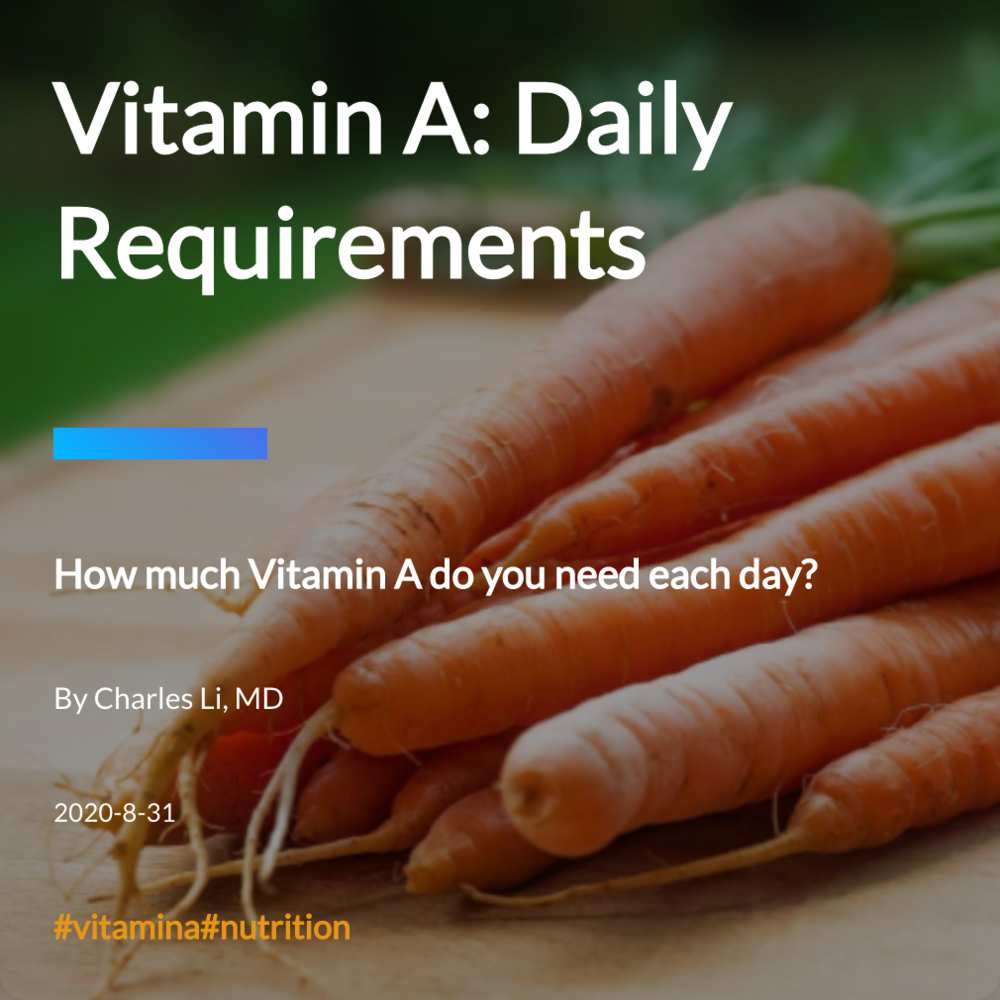

1. Men Need More Vitamin A Each Day
Men need nearly 30% more Vitamin A each day compared to women.

2. Vegetables Are Great Sources of Vitamin A
When it comes to your daily Vitamin A, foods such as spinach, carrots, and sweet potato are some of your best bets.

3. More Than Just Eyesight
Vitamin A plays important roles throughout your body. It has even been linked to a lower risk of cancer.
Adults
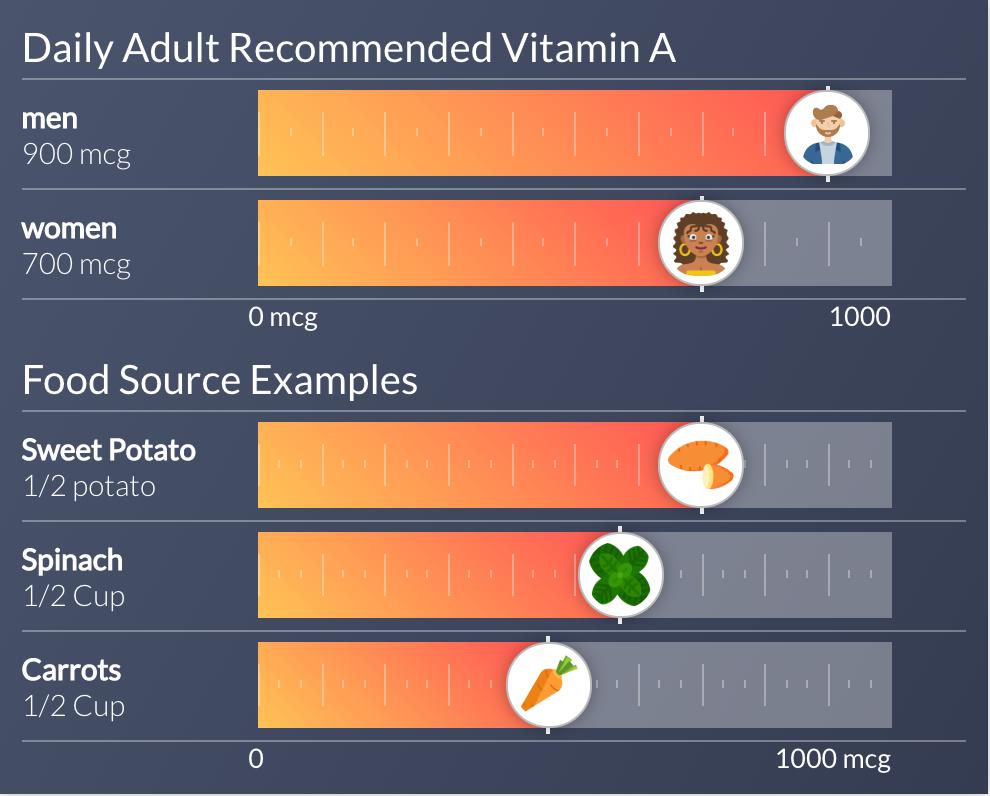
Each day, men are recommended to eat 900 mcg in their diet, and women are recommended to eat 700 mcg. This corresponds to slightly more than half of a sweet potato and just less than one cup of spinach. Unlike Vitamin D, your body needs to get its Vitamin A from your diet.
Children
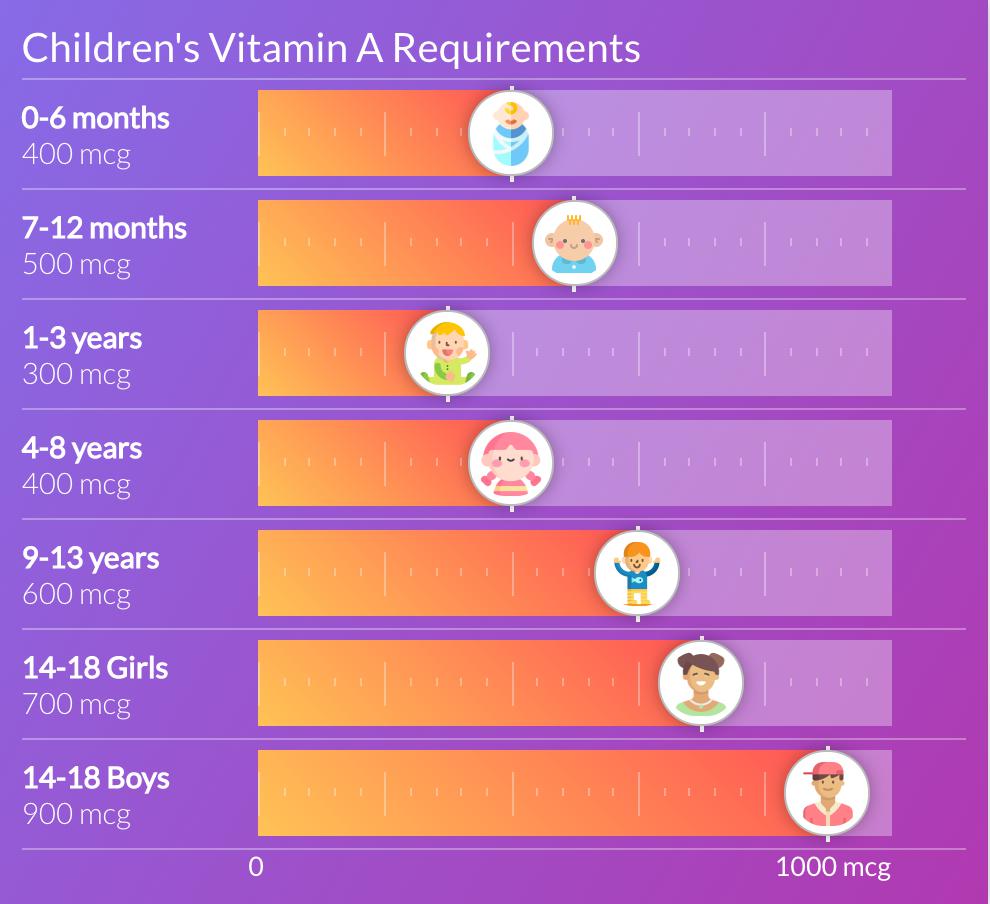
Babies need 400 mcg of Vitamin A each day. Toddlers need slightly less, at 300 mcg per day. This rises each year until they reach 14. 14-year-old boys need 900 mcg of Vitamin A each day. 14-year-old girls need 700 mcg of Vitamin A each day.
Key Facts
Key Facts
Functions
Key Facts
- TypeFat soluble
- SourceDiet
- Other NamesRetinol, retinyl ester
Appearance

Key Sources

Carrots

Sweet Potatoes

Spinach

Vision
Vitamin A plays a key role in our black and white and night vision.

Immunity
Vitamin A helps your immune system fight off disease.

Cell Growth
Vitamin A helps your cells grow and develop properly, particularly in young children.

Vitamin A Benefit #1

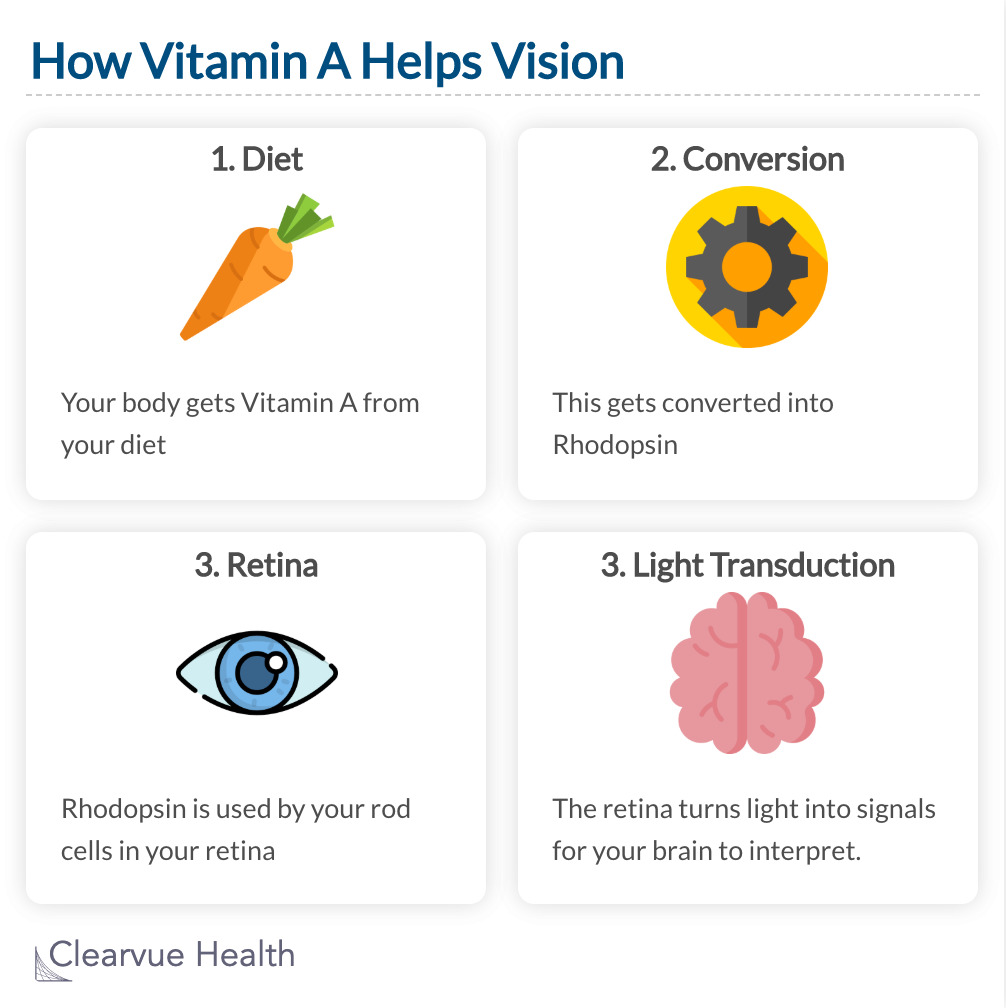
Your body gets Vitamin A from your diet. Vitamin a gets converted into rhodopsin. Rhodopsin is used by your rod cells in your retina. The retina turns light into signals for your brain to interpret.
Vitamin A Benefit #2

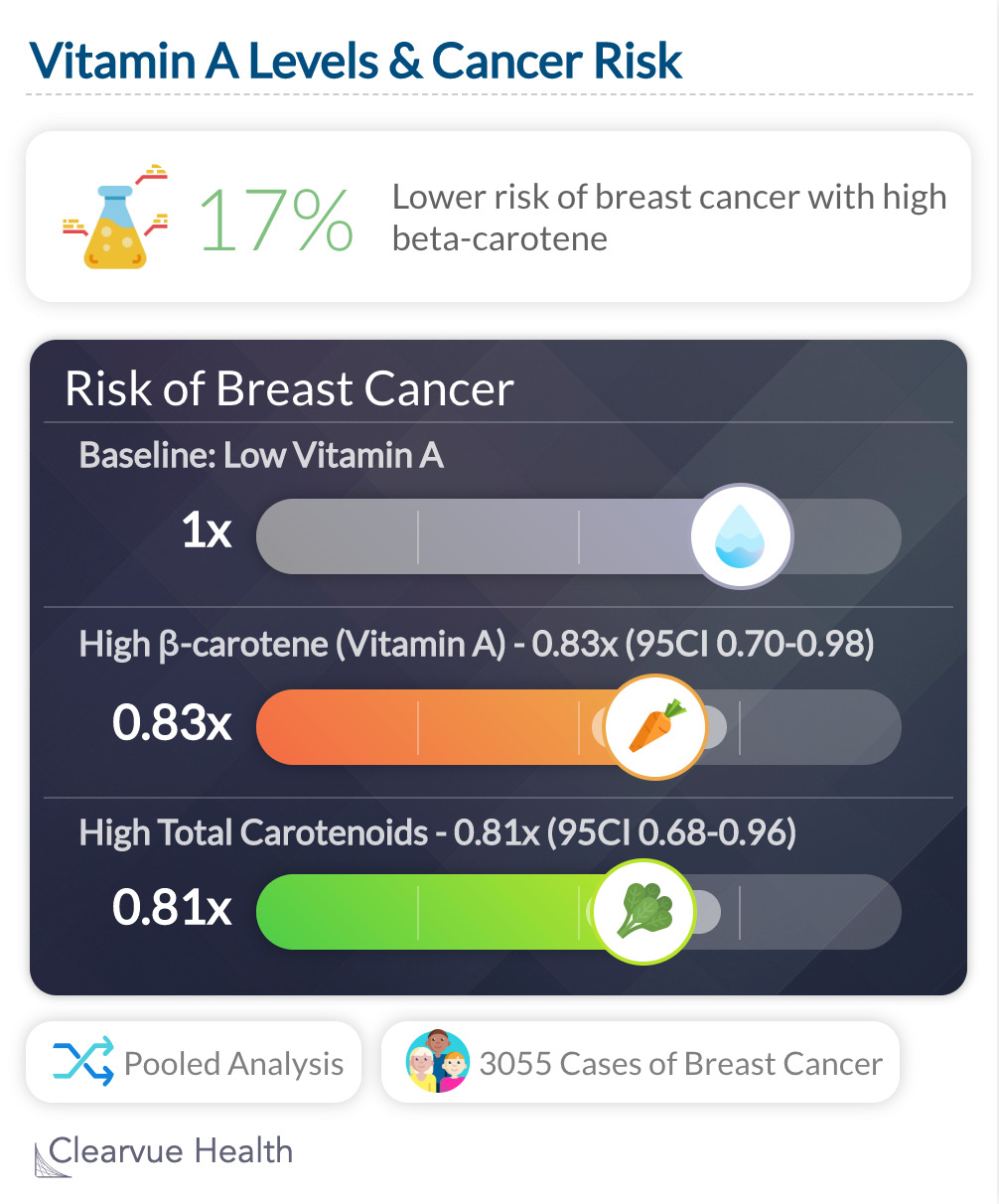
A pooled analysis of eight cohort studies found that Vitamin A levels in your blood correlate with your risk of breast cancer. Having a lot of vitamin A in the form of β-carotene correlates with a 17% lower risk of breast cancer. Having a lot of total carotenoids, which includes the pigments found in vegetables, correlates with a 19% lower risk of breast cancer.
Data Source
"In this large pooled analysis with more than 3000 case subjects, we observed statistically significant inverse associations between circulating levels of individual and total carotenoids and breast cancer risk. "
More Info

#nutrition
Scroll for more ->





#vitamina
Scroll for more ->




#new
Scroll for more ->















